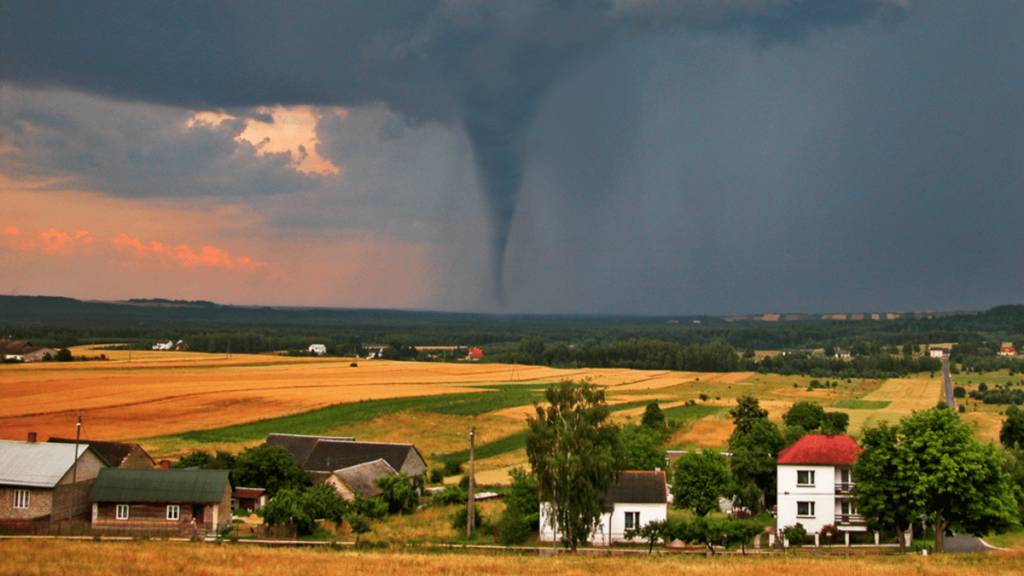- News
- When a Natural Disaster Strikes, You Can Strike Back
When a Natural Disaster Strikes, You Can Strike Back

Fortunately for all of us who live in Michigan, our state has long been considered relatively safe from natural disasters such as wildfires, earthquakes and hurricanes. Some experts even consider Michigan to be an unequalled safe haven from many of Mother Nature’s scariest temper tantrums. Indeed, our very own Ann Arbor has recently been mentioned as one of America’s most resilient cities when it comes to facing and recovering from climate-related dangers.
But while major hazards like earthquakes or tropical cyclones are rare in the Great Lakes State, we do face our own fair share of risks when it comes to other damaging events such as tornadoes, winter storms, and unpredictable flooding. In recent years, for example, Great Lakes water levels have fluctuated dramatically – with record highs in 2020-22 causing homes to be destroyed by erosion. Likewise, extreme rainfall events have resulted in dam failures, costing tens of millions of dollars in flood-related losses to home and business owners. And other weather-related disasters have caused innocent Michigan victims to experience pain and suffering in winter and summer alike. There were even two tornadoes reported just last month – one of which hit northern Oakland County – an event that’s nearly unprecedented around these parts at this time of year!
Are you protected from Mother Nature’s wrath?
While many types of natural disasters are covered by property or auto insurance policies, some are not. For instance, most homeowners’ insurance plans typically won’t cover damage caused by floods or earthquakes – you’d need to purchase separate policies to protect yourself against those hazards. Some insurance policies also specifically exclude coverage for disasters classified as “acts of God” – which can leave you unprotected in numerous scary situations.
And it’s entirely possible that in addition to property damage, you and people you care about might be seriously injured in a natural disaster, which could lead to medical and rehabilitation expenses not covered by your family’s insurance portfolio. Not to mention that most insurance policies also come with deductibles – amounts you must pay out of your own pocket toward repairs or medical bills – before the plan’s benefits kick in In general, higher deductibles result in lower premium charges but can leave you more financially vulnerable in the event of a major claim.
What about storm damage or injuries related to negligence?
You could also find that if, for example, you’re a renter and your landlord has failed to provide a safe environment during a natural disaster, or perhaps you get hurt while in a poorly manufactured building that suffers structural damage in a storm, you may have to seek compensation through legal means to make up for the property owner’s negligence, a situation which we’ve discussed at length in another helpful article.
Insurance companies, too, have sometimes been reluctant to properly cover policyholders’ losses – delaying or denying claims, and leaving individuals with limited means little recourse to fight improper or unfair decisions made by adjusters or other representatives of large, impersonal corporations with deep pockets. (See as an example this advice about dealing with insurers provided to Michigan homeowners after a major flooding event, which was published by the state Department of Insurance and Financial Services. You might find this information can help you avoid the kinds of issues that may arise if you encounter this type of incident.)
In such cases, it can also pay to know a team of dedicated personal injury attorneys who can take your side and help you recover from the situation – both physically and financially – by assisting you in receiving the kind of monetary resources that will be necessary to rebuild your life and regain your health.
Advice on protecting yourself in the event of a natural disaster
Beyond seeking out legal assistance after a natural disaster (as has been wisely suggested by the National Trial Lawyers Association) there are a number of other places where you can find additional information on how to recover from the tragic losses that often occur due to so-called “acts of God.” The Federal Emergency Management Agency (FEMA) offers resources outlining a variety of steps you can take to safeguard your life and to protect your family. Similarly, the National Association of Insurance Commissioners has published a disaster recovery guidebook that offers smart suggestions on effectively dealing with insurance companies through the claims process, among other valuable tips.
Finally, know that our team of premises liability lawyers stands ready to help you in any way we can if you or someone you care about are hurt in a natural disaster through no fault of your own. Our long experience with personal injury law will be something you can count on when tough situations arise. To take advantage of our expertise in fighting forcefully on behalf of clients just like you, call us at 855-MIKE-WINS (855-645-3946), or contact us online anytime you need us.

Content checked by Mike Morse, personal injury attorney with Mike Morse Injury Law Firm. Mike Morse is the founder of Mike Morse Law Firm, the largest personal injury law firm in Michigan. Since being founded in 1995, Mike Morse Law Firm has grown to over 200 employees, served 40,000 clients, and collected more than $1.5 billion for victims of auto, truck and motorcycle accidents. The main office is in Southfield, MI but you can also find us in Detroit, Sterling Heights and many other locations.








